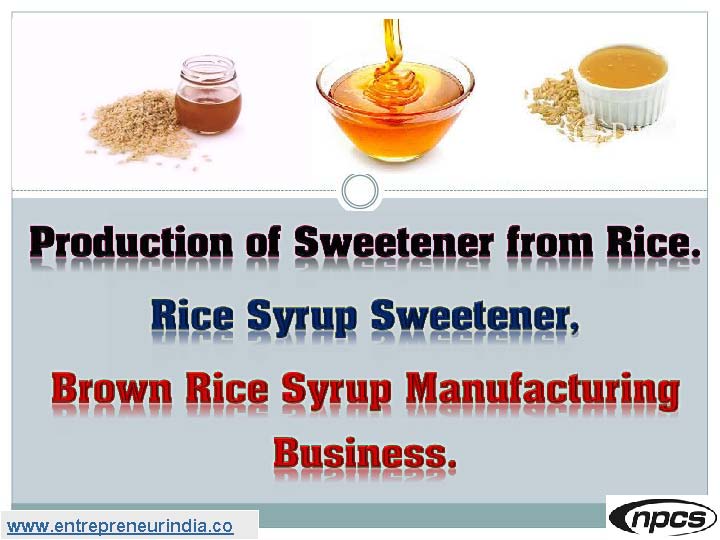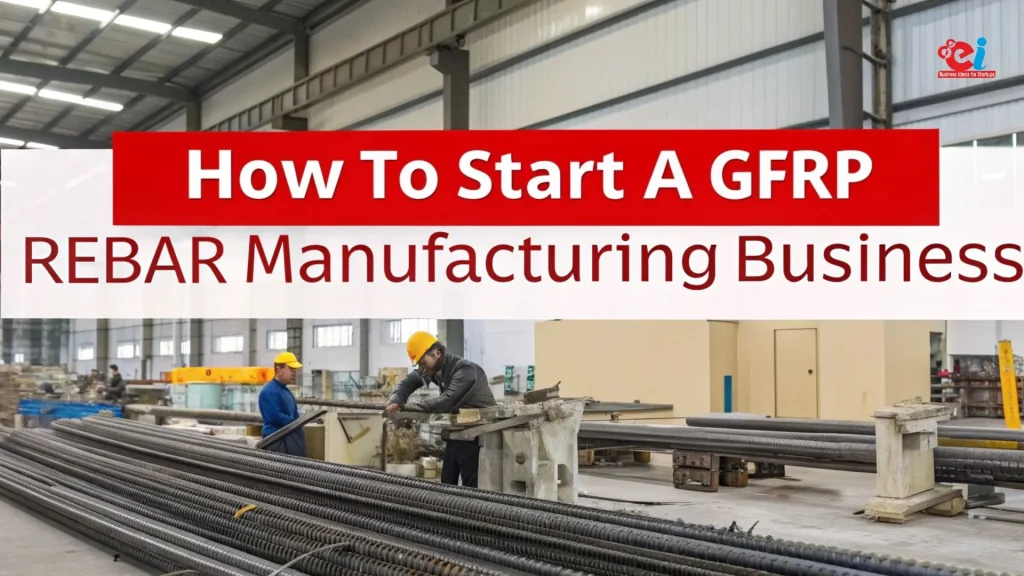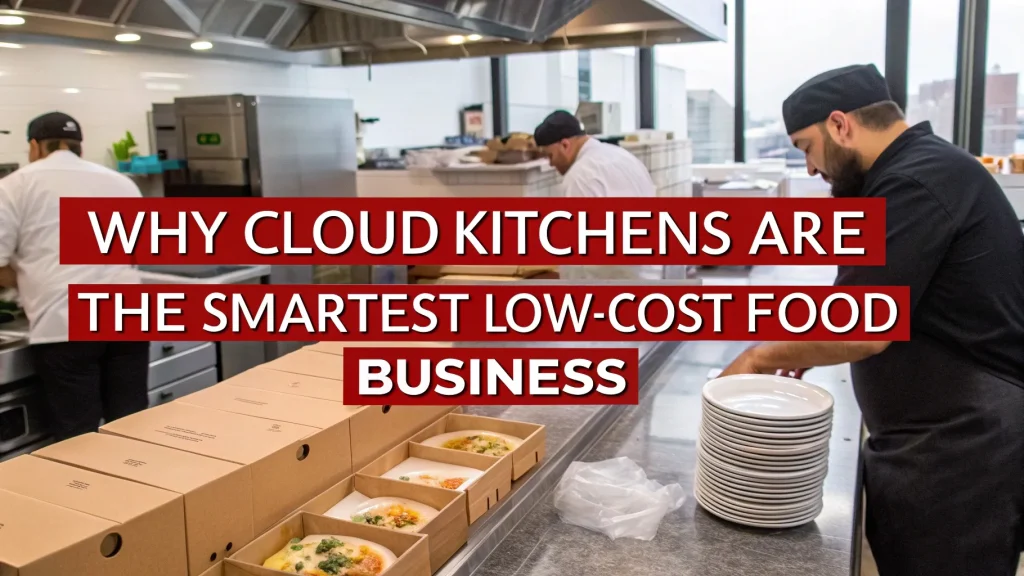
The production of sweetener from rice is becoming a profitable and sustainable segment within the global food processing industry. With rising health awareness, the demand for natural, plant-based, and allergen-free sweeteners is on the rise. Rice-based sweeteners like rice syrup and rice malt extract are emerging as excellent alternatives to corn syrup, sugar, and artificial sweeteners. Especially appealing to vegan, gluten-free, and health-conscious consumers, the production of sweetener from rice has gained momentum among food manufacturers and agri-based startups seeking innovative yet scalable business models.
Why the Food Industry is Moving Toward Rice-Based Sweeteners
Rice-based sweeteners are derived from milled rice or broken rice using enzymatic hydrolysis. The process converts starches into glucose, maltose, and other sugar forms, resulting in a clear, mildly sweet liquid commonly referred to as rice syrup. These sweeteners are often used in baby food, cereals, granola bars, beverages, baked goods, and sauces due to their mild flavor and hypoallergenic profile.
The production of sweetener from rice is attracting attention not only for its clean-label appeal but also for its ability to meet the growing demand for non-GMO, allergen-free, and plant-derived food ingredients. Since rice is widely grown in many countries, including India, China, Vietnam, and Thailand, the raw material is abundantly available, making this a sustainable and scalable business option.
Overview of the Production Process
The production of sweetener from rice involves a controlled enzymatic breakdown of rice starch into sugar. This process includes several steps such as:
The production process begins when operators soak and grind broken or milled rice into a fine slurry.
Next, they initiate liquefaction by applying heat and adding alpha-amylase enzymes to break down the starch into short-chain dextrins.
During saccharification, they introduce glucoamylase and other enzymes to convert the dextrins into simpler sugars like glucose and maltose.
Technicians then filter the liquid and treat it with activated carbon to remove impurities and enhance clarity.
They proceed to concentrate the sweetened liquid through vacuum evaporation, adjusting it to the desired consistency for the final product.
Finally, workers package the end product into bottles, drums, or pouches depending on whether it’s meant for industrial applications or direct consumer use.
The quality of the final product in the production of sweetener from rice depends on enzyme quality, rice type, and the precision of the hydrolysis process.
Types of Rice-Based Sweeteners and Their Applications
In the production of sweetener from rice, different types of sweeteners can be manufactured depending on the process and enzymes used:
-
Brown Rice Syrup: Made from whole grain brown rice and popular in organic food sectors.
-
Clear Rice Syrup: More refined, used in beverages, sauces, and processed snacks.
-
High-Maltose Syrup: Suitable for brewing, confectionery, and bakery applications.
-
Glucose Syrup from Rice: Ideal for baby food, jams, and dairy products.
-
Rice Malt Extract: Contains natural nutrients and is often used in baby and geriatric foods.
These products are gaining traction in health-focused consumer markets, creating new income opportunities for producers engaged in the production of sweetener from rice.
Market Demand and Export Potential
The global shift toward clean-label and plant-based food ingredients has fueled demand for rice-derived sweeteners. Countries in North America, Europe, and parts of Asia are witnessing rising consumption of rice syrup and malt extracts due to increasing lactose intolerance, gluten allergies, and sugar-free diet trends.
India, being one of the world’s top rice producers, is well-positioned to benefit from the production of sweetener from rice—both for domestic supply and international exports. The demand from food manufacturers looking for organic and non-GMO alternatives continues to rise, presenting immense potential for growth in this sector.
Key Benefits of Investing in Rice-Based Sweetener Production
Entrepreneurs and agribusiness owners exploring the production of sweetener from rice can benefit in several ways:
-
High market demand in natural and health-conscious segments
-
Abundant raw materials from broken rice or low-grade varieties
-
Low entry barrier with scalable machinery available for small and large units
-
Attractive profit margins, especially when catering to niche health food markets
-
Multiple product lines (syrup, extract, glucose, maltose) using the same setup
-
Government support for food processing under schemes like PMFME, PMKSY in India
Moreover, the ability to use broken rice—an often undervalued byproduct—adds value to agricultural supply chains and supports sustainable farming practices.
Machinery and Investment Requirements
Setting up a production of sweetener from rice unit requires investment in the following machinery:
-
Rice milling unit (if using whole grain)
-
Soaking and slurry tanks
-
Enzymatic reactors with temperature control
-
Filtration systems
-
Activated carbon treatment unit
-
Vacuum evaporator
-
Filling and packing machines
For a small-scale unit, an investment of ?15–25 lakhs (~$20,000–$35,000) is generally sufficient, while medium and large-scale plants may require ?50 lakhs to several crores. Running costs mainly include raw material (rice), enzymes, utilities, labor, and packaging.
With proper marketing and consistent product quality, a rice sweetener production business can achieve breakeven within the first year of operation.
Quality Standards and Regulatory Compliance
To succeed in the production of sweetener from rice, it is essential to comply with local and international food safety standards. In India, licensing from FSSAI is mandatory, while for export purposes, certifications like ISO, HACCP, and organic labeling enhance market credibility.
Ensuring hygiene, batch traceability, and accurate labeling helps build trust among health-conscious buyers. Transparent supply chains and organic sourcing can also help attract premium customers and bulk buyers from the food, beverage, and wellness sectors.
Marketing and Selling the Product
To monetize the production of sweetener from rice, manufacturers can explore various B2B and B2C strategies:
-
Sell to bakeries, confectioners, and beverage companies as an ingredient
-
Export to organic food stores and health food distributors
-
Launch own label of health-friendly sweeteners for retail (via Amazon, Flipkart, etc.)
-
Collaborate with dieticians and nutritionists to promote benefits of rice sweeteners
-
Reach out to pharma and baby food companies using rice-based products
Promotional strategies should highlight the product’s gluten-free, allergen-free, and natural origin, which are strong value points in modern consumer markets.
Conclusion
The production of sweetener from rice offers a compelling business opportunity that aligns perfectly with global food trends favoring health, transparency, and sustainability. It leverages easily available agricultural raw materials, supports value addition in the rice supply chain, and meets growing consumer demand for plant-based, clean-label ingredients.
With the right technology, quality control, and market focus, entrepreneurs can turn this opportunity into a long-term profitable venture. Whether you are a farmer, food processor, or agri-startup founder, now is the ideal time to explore the full potential of rice-based sweeteners in the global marketplace.
Niir Project Consultancy Services
An ISO 9001:2015 Company
106-E, Kamla Nagar, Opp. Spark Mall,
New Delhi-110007, India.
Email: npcs.ei@gmail.com , info@entrepreneurindia.co
Tel: +91-11-23843955, 23845654, 23845886, 8800733955
Mobile: +91-9811043595
Website: www.entrepreneurindia.co , www.niir.org





